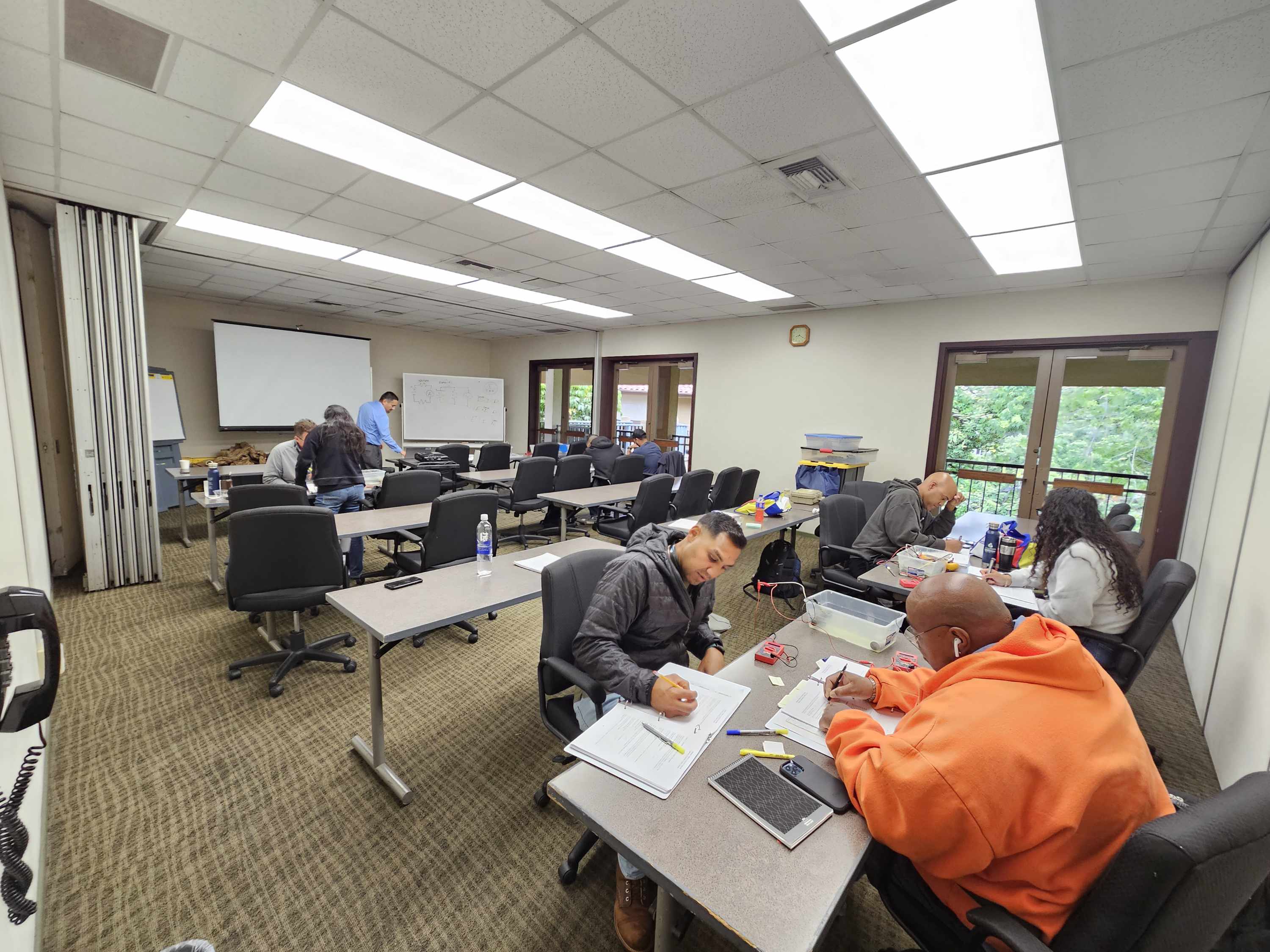Western States Corrosion Seminar
CP Tester Course


CP TESTER COURSE
2.5 day course (runs concurrenlty with seminar)provides specialized CP Testing information and training. Includes exam and certificate.
TUESDAY 8:30 am to 5:00 pm
WEDNESDAY 8:00 am to 5:00 pm
THURSDAY 8:00 am to 12:00 noon
The WESTERN STATES CORROSION SEMINAR offers this 2-1/2-day course. It presents cathodic protection (CP) and electricity fundamentals, basic corrosion related to CP, galvanic corrosion, galvanic anode and impressed current CP systems, soil resistivity testing, use of current shunts, routine testing and measurements, and safety. In addition to classroom instruction and discussion, students participate in hands-on training.
This 2-1/2-day CP Tester Recognition course is NOT the AMPP 5-day CP Tester (CP1) course.
COURSE OUTLINE
Cathodic Protection Fundamentals
What is CP? What is CP used for? How does CP work?
Electricity Fundamentals
Electrical Terms, Ohm's Law, Kirchhoff's Law, Electrical Circuits
Basic Chemistry Related to CP
Basic Chemistry, Electrochemical Cells
Galvanic Corrosion
Galvanic Series, Classroom Experiments
Galvanic Anode CP Systems
Types of Systems. Advantages & Disadvantages, Anode and Backfill Materials, Design & Installation, Lead Wires & Connections, Classroom Experiment
Impressed Current CP Systems
Types of Systems, Advantages and Disadvantages, Structures Protected, Anode & Backfill Materials, Lead Wires & Connections, Power Sources, Transformer Rectifiers, Photovoltaics, Engine, Thermoelectric, & Wind Generators, Design & Installation, Selection & Installation of Power Source, Classroom Experiment
Soil Resistivity Testing
Resistivity vs Resistance, Uses of Soil Resistivity Values, Wenner 4-Pin Method, Use of Soil Boxes, Other Methods of Measuring Soil Resistivity, Classroom Experiment Using Soil Box, Field Experiment Using Wenner 4-Pin Method
Use of Current Shunts in CP Testing
MV Shunts, Ohm Shunts, Classroom Experiments
Routine CP Testing | Structure-to-Electrolyte Potentials
Record Keeping, Measuring Circuit, Voltage Characteristics, Sources of Errors, Reference Electrodes, CP Criteria, Placement of Reference Electrode, Stationary Reference Electrodes, Lugin Probes, Field Experiment
Routine CP Testing | Periodic Rectifier Readings
Record Keeping, Panel vs Field Meters, Measuring Output Voltage & Current, Recording Other Rectifier Settings, Adjusting Rectifier Output
Other Routine CP System Measurements
Galvanic Anode Current Output, Side Potentials, Stray Current Detection & Mitigation, Bonds, Isolators, Pipeline Current Measurements, Classroom Experiment
Safety
Electrical Safety, Environmental & Chemical Hazards, Explosions & Ignitions, Excavations, Enclosed Spaces, Driving, Glossary
AMPP Standards
SP0169 (previously RP0169)
Discuss Quiz
PRE-REQUISITES
An understanding of basic electricity and a minimum 240 hours of actual CP testing related work experience are seriously recommended.
WHO SHOULD ATTEND
Cathodic protection field personnel, technicians, and those desiring recognition as a "CP Tester" should attend this course.
REGISTRATION FEE
The fee for the CP Tester Course is $745 and includes course manual, 3 lunches, continuous refreshments, and 2 evening social hours.
EXAM
A CP Tester exam will be given. Those who successfully complete the exam and have documented work experience within the last year are qualified to become recognized as a "CP Tester" as defined in Code 40 CFR 280.12 of the Code of the Federal Regulations. A certificate of completion will be included upon passing the exam.
Contact us if you have any questions about our seminar and courses.